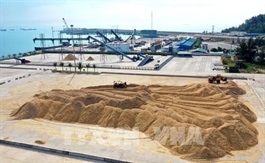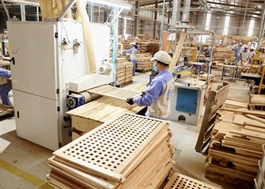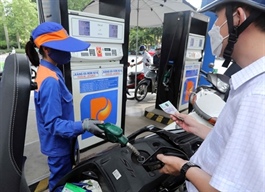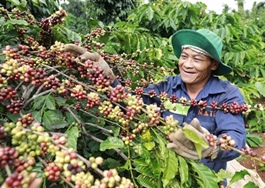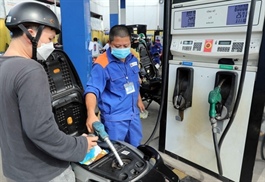Plenty of room for Vietnamese tea exports to the UK
Plenty of room for Vietnamese tea exports to the UK
There is plenty of room for Vietnamese tea products to secure a larger market share in the United Kingdom, as the country currently accounts for only 0.1 per cent of the UK's total tea imports, experts have said.
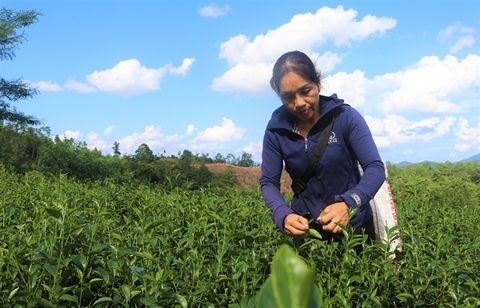
A farmer harvest tea grown on the mountainous area of Cao Bằng Province. — VNA/VNS Photo Chu Hiệu |
At present, Việt Nam is the 23rd largest tea supplier to the UK market. However, Vietnamese tea exports to this market saw a significant decline both in value and volume during the first half of 2023.
The average price of tea imported from Việt Nam stood at US$4.928 per tonne, a decrease of 0.4 per cent compared to the same period last year.
In those six months, the UK spent $160 million on importing 53,000 tonnes of tea, marking a 9.7 per cent reduction in volume and a 9.4 per cent drop in value from the corresponding period the previous year, according to data from the International Trade Centre (ITC).
Kenya emerged as the predominant tea provider to the UK, representing 56.8 per cent of the market's total imports. Kenya dispatched 30,100 tonnes to the market, garnering $70.9 million, an increase of 3.2 per cent in volume and 1.6 per cent in value year-on-year.
Other significant tea exporters to the UK included India, Malawi, and Switzerland.
To augment tea exports, especially to the UK market, businesses are urged to bolster cooperation, cultivate high-quality raw material regions, and transition to new tea varieties, as advised by the Ministry of Agriculture and Rural Development (MARD).
Further, they should refine processing procedures and adhere to food safety standards to align with the market's demands, the ministry recommended.
Việt Nam currently holds the 7th and 5th positions globally in terms of tea production and exports, respectively.
As per MARD, the country has allocated 123,000ha for tea cultivation, possessing the capacity to yield 1.02 million tonnes of fresh buds.
Vietnamese tea products have reached 74 countries and territories around the world, with key destinations being Pakistan, China, Russia, and Indonesia.




